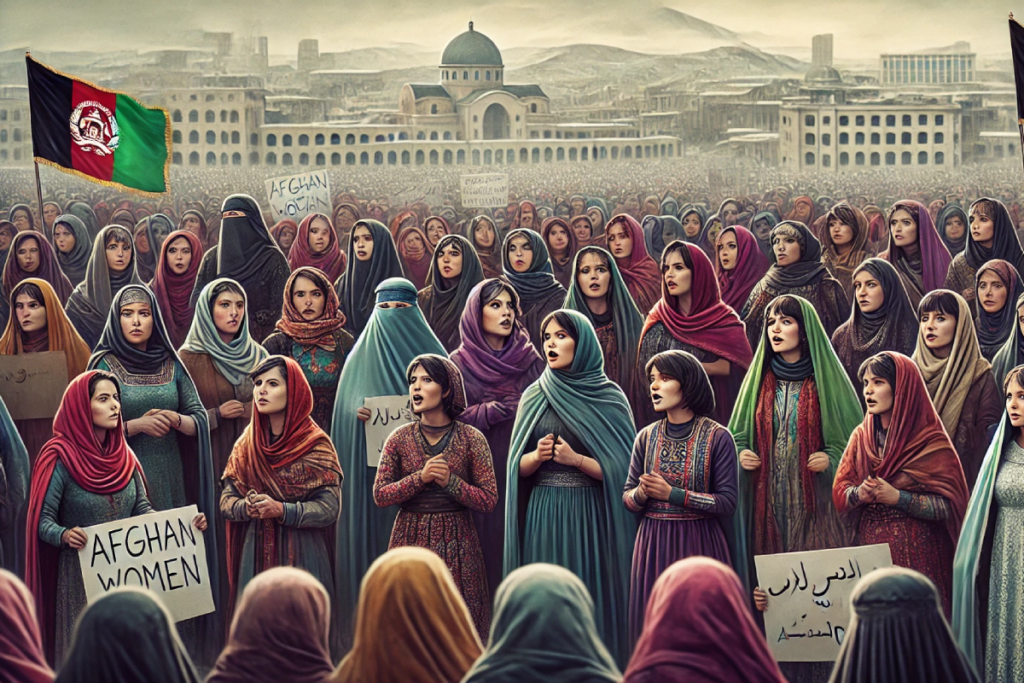In a powerful move, the United Nations (UN) has officially condemned the recent legal restrictions imposed by the Taliban on Afghan women. Since retaking control of Afghanistan in 2021, the Taliban has implemented several laws that have significantly curtailed the rights and freedoms of women and girls, drawing widespread international criticism. Afghan women, both within the country and in the global diaspora, have bravely spoken out against these oppressive laws. In this blog post, we will explore the UN’s condemnation of these laws, highlight the voices of Afghan women, and discuss the broader implications for women’s rights in Afghanistan.
The UN’s Condemnation of Taliban Law
The UN’s response to the Taliban’s restrictive laws has been firm, with many international organizations calling for immediate action. High-volume keywords: “UN condemns Taliban law,” “women’s rights in Afghanistan,” “Taliban restrictions on women.”
Key Restrictions on Afghan Women
Since regaining control, the Taliban has reintroduced policies that severely limit women’s participation in society. Some of the most alarming laws include barring women from attending secondary schools, universities, and certain workplaces. Women are also required to follow strict dress codes and face restrictions on traveling without a male guardian.
Example: The Taliban recently banned women from accessing public parks and gyms, further reducing their opportunities for leisure, socialization, and self-care, sparking global outrage.
UN’s Response
The United Nations, through its agencies such as UN Women and the Office of the High Commissioner for Human Rights, has condemned the Taliban’s legal actions, labeling them as violations of international human rights standards. The UN has called for the immediate restoration of women’s rights in Afghanistan, urging the Taliban to honor commitments to gender equality that the Afghan people deserve.
Example: In a recent statement, UN Secretary-General António Guterres said, “We cannot abandon the women and girls of Afghanistan. We must push for the restoration of their rights.”
Afghan Women Speak Out
Despite facing grave dangers, Afghan women have shown immense courage in speaking out against the Taliban’s laws. High-volume keywords: “Afghan women protests,” “Afghan women activism,” “women speaking out against Taliban.”
Women-Led Protests and Global Solidarity
In the streets of Kabul and other major cities, women have organized protests and peaceful marches, demanding their rights to education, employment, and freedom. Although these protests are often met with violence and arrests, they continue to serve as a beacon of hope and resistance.
Example: Social media platforms have become vital tools for Afghan women, enabling them to share their experiences, call for international support, and organize virtual campaigns. Afghan women in the diaspora are amplifying these voices, ensuring the world stays informed about the ongoing human rights crisis in their homeland.
Personal Stories of Resistance
Many Afghan women, both in the country and in exile, have shared their personal stories of resistance and defiance. These women, who were once doctors, lawyers, teachers, and leaders, have seen their lives upended by the Taliban’s draconian laws. However, they refuse to be silenced and are advocating for their right to reclaim their place in Afghan society.
Example: One woman, who worked as a teacher before the Taliban’s takeover, now runs underground educational classes for young girls, defying the Taliban’s bans on female education.
Broader Implications for Women’s Rights in Afghanistan
The ongoing situation in Afghanistan has wide-reaching implications for women’s rights and the international community’s role in addressing human rights abuses. High-volume keywords: “Afghanistan women’s rights,” “Taliban human rights violations,” “global women’s rights movement.”
International Pressure and Sanctions
Many countries and organizations have imposed sanctions on the Taliban in response to the ongoing violations of women’s rights. The international community continues to exert diplomatic pressure, demanding that the Taliban reverse its policies. However, the Taliban has so far remained defiant, claiming that their laws align with cultural and religious beliefs.
Example: International aid organizations have also highlighted how the exclusion of women from public life is contributing to the country’s worsening humanitarian crisis, as women play critical roles in healthcare, education, and community development.
The Role of Global Women’s Movements
The global women’s rights movement has rallied behind Afghan women, organizing protests, petitions, and fundraising efforts to support activists on the ground. The plight of Afghan women has served as a stark reminder that women’s rights are still under threat in many parts of the world and that collective action is necessary to ensure equality and freedom for all.
Example: Women’s rights organizations across the globe have called on the UN and other international bodies to prioritize Afghan women’s rights in all diplomatic negotiations with the Taliban.
Conclusion
The UN’s condemnation of the Taliban’s restrictive laws highlights the urgent need for international action to protect Afghan women and restore their rights. As Afghan women bravely continue to speak out against the oppressive regime, the world must listen and act in solidarity with them. The future of Afghanistan’s women and girls depends on sustained pressure, advocacy, and support from the global community.


